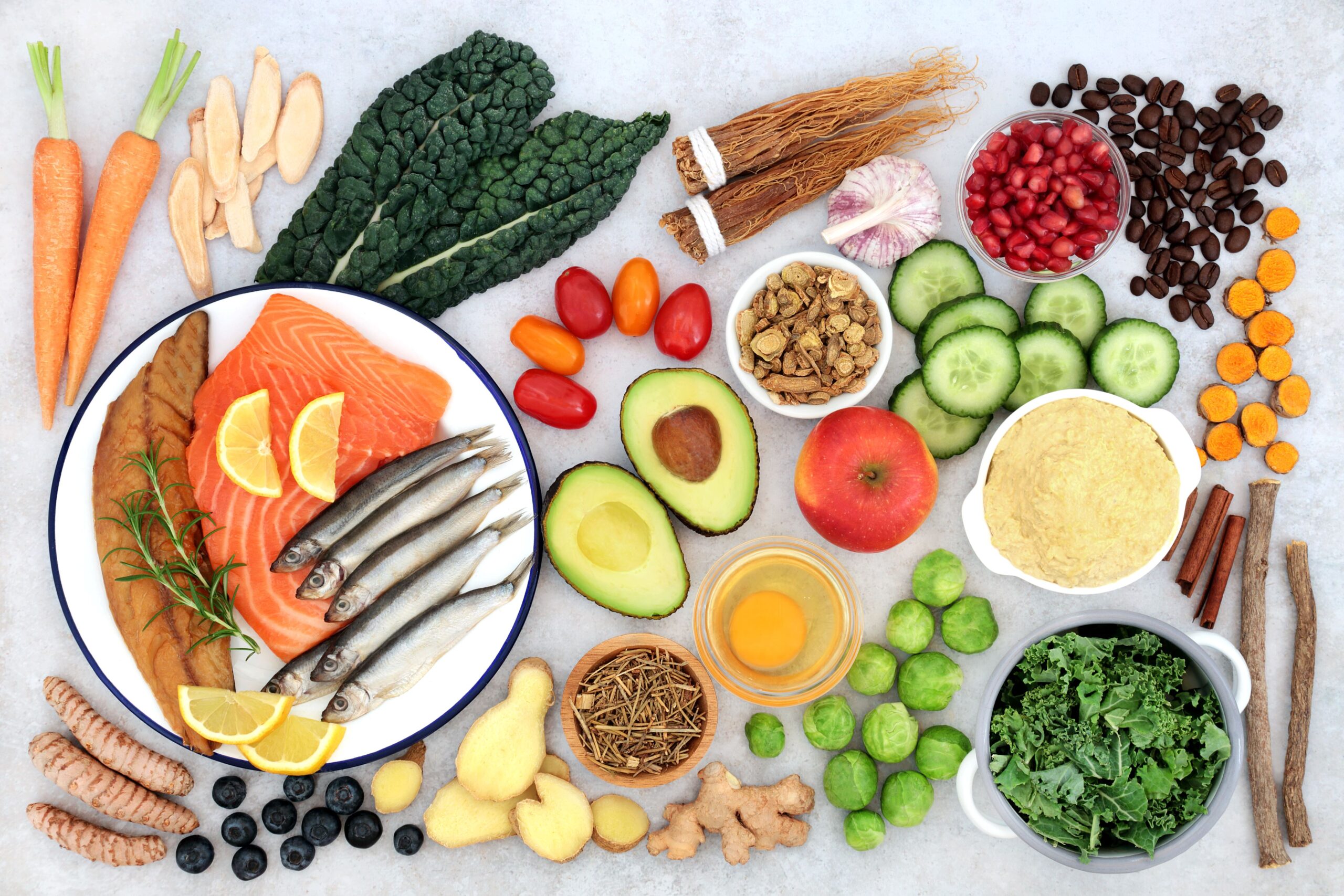
March is national nutrition month! We wanted to take the opportunity to discuss the connection between foods we eat and inflammation. What we eat can cause inflammation. Inflammation is a natural and necessary process that plays a crucial role in the body’s immune response to injury, infection, and tissue damage. However, inflammation can be detrimental to health when it becomes chronic or excessive, leading to persistent tissue damage, dysfunction, and an increased risk of various diseases.Chronic inflammation is associated with many challenging conditions, including obesity. By adopting a healthful non-inflammatory diet, you may be able to reduce inflammation, better manage your weight and lower the risk of so many conditions that are associated with inflammation.
Gut disorders like inflammatory bowel disease, irritable bowel syndrome, celiac disease and diverticulitis, gastroenteritis, and gastroesophageal reflux disease all have some type of inflammation involved. Inflammation also plays a role in many heart conditions, including atherosclerosis, coronary heart disease and pericarditis, to name a few. Inflammation also plays a role in depression, anxiety and post-traumatic stress disorder, among others. Most ailments we experience are associated with inflammation.
So you might be thinking, how do I begin? So many diets fail, simply because it can be difficult to adhere to specific restrictions and stick with it. We understand that it takes time and effort to make lifestyle changes. So, here we will share what types of foods to start including in your meals, while also sharing what foods to refrain from day to day. It’s not just about anti-inflammatory foods, it’s about our eating habits as well- how often we eat, how much we eat, what times we eat.
Keep your plate balanced, colorful (to get a variety of foods & nutrients) and stop eating once you feel about 80% full or when you get a first sense of feeling full. We have often been taught to eat what’s on our plate. If we serve ourselves, we begin to learn what the right amount is for us, and we can always save food for leftovers, so we don’t feel wasteful. Cooking vegetables makes it easier to digest. Cooking with healthy oils is important- avocado oil, olive oil or coconut oil. When in doubt, practice moderation. For instance, try 1 cup of coffee at one sitting, instead of 3. If you feel the need to have dessert, try a small piece of dark chocolate, rather than taking in that piece of pie. Also, try to eat your last meal of the day (usually dinner) earlier in the evening, as eating late at night can be problematic for our blood sugar levels, proper digestion, sleeping well, and maintaining weight.
Here are some anti-inflammatory foods we recommend including in your diet:
- Fruits- are rich in antioxidants and vitamins that help combat inflammation. This includes berries, oranges, lemons, cherries, apples and pears.
- Vegetables- Vegetables are full of vitamins, minerals and phytonutrients that decrease inflammation. This includes leafy greens, broccoli, cauliflower, brussels sprouts, bell peppers, sweet potatoes and tomatoes.
- Healthy fats- Healthy fats include omega-3 fatty acids that have anti-inflammatory effects. Avocados, olive oil, nuts (walnuts, almonds, pistachios, with the exception of peanuts), seeds like flaxseeds, chia seeds, hemp seeds), and fatty fish (salmon, trout).
- Legumes- chickpeas, black beans, red kidney beans and lentils are high in fiber and phytonutrients, which help with inflammation.
- Spices- These spices can add wonderful flavor to your food while having anti-inflammatory properties: garlic, turmeric, ginger, cinnamon, and cayenne pepper. You can also take these as a supplement if you don’t find it easy to add these to your food or to be sure to take them in higher quantities.
- Teas and Coffee- Coffee, green tea, and black tea contain polyphenols and other anti-inflammatory properties.
If this seems overwhelming, start slow and incorporate week by week. Try one anti-inflammatory food on the list you don’t typically eat and take something out that you know could be problematic. Start 1 habit we recommended that you think you can add to your routine, and go from there.
Seek a professional if you experience digestive issues, weight problems or other health issues to address your specific needs. We understand that not all recommendations are optimal for everyone. Each person experiences food differently and we need to pay attention to our own bodies.


